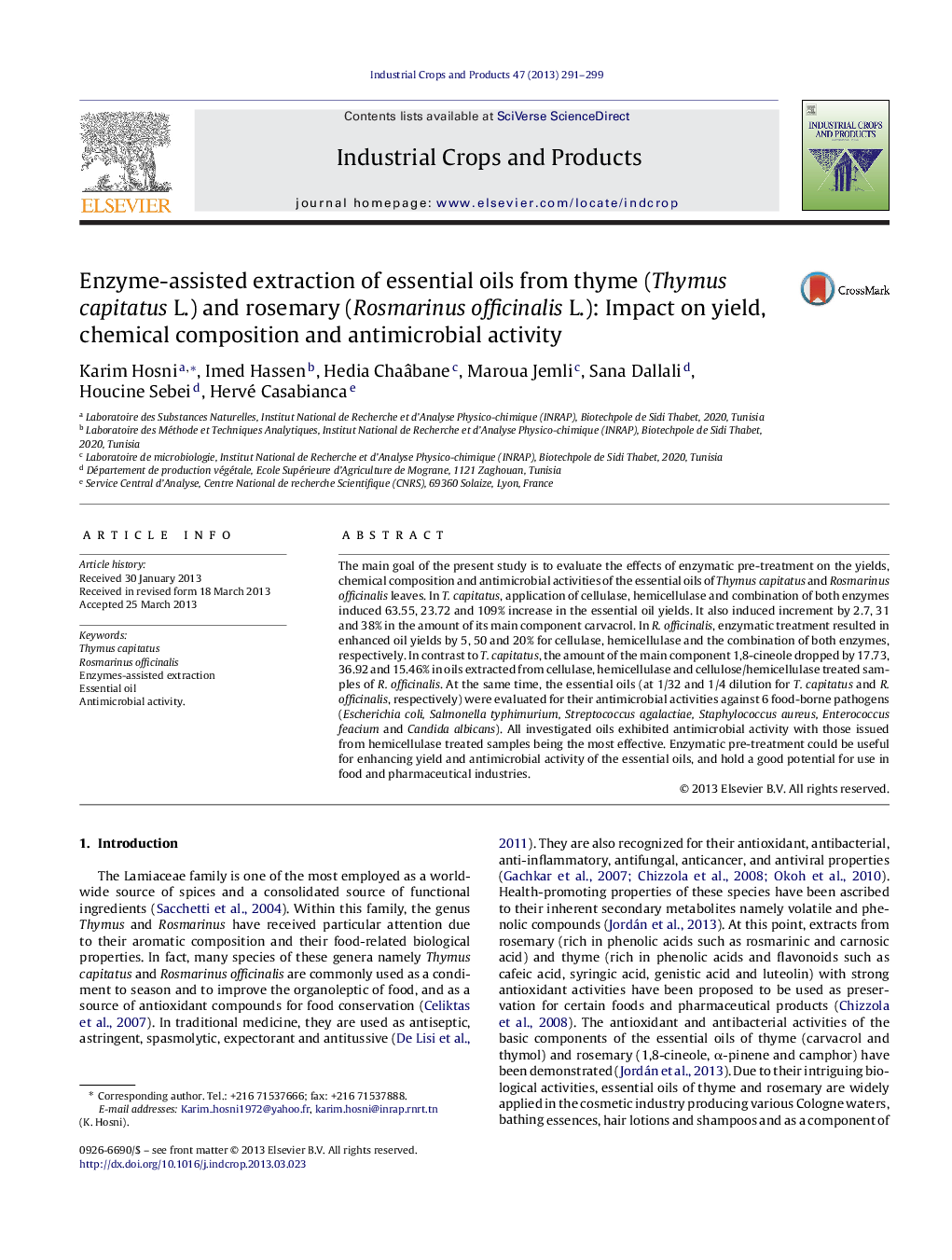| کد مقاله | کد نشریه | سال انتشار | مقاله انگلیسی | نسخه تمام متن |
|---|---|---|---|---|
| 4513570 | 1624862 | 2013 | 9 صفحه PDF | دانلود رایگان |

• Enzymatic pre-treatment enhanced the yields of thyme and rosemary essential oils
• Increased amount of carvacrol was observed in thyme treated samples
• The amount of 1,8-cineole was reduced by enzymatic treatment of rosemary
• Hemicellulase treated samples were the most effective against microbial strains.
The main goal of the present study is to evaluate the effects of enzymatic pre-treatment on the yields, chemical composition and antimicrobial activities of the essential oils of Thymus capitatus and Rosmarinus officinalis leaves. In T. capitatus, application of cellulase, hemicellulase and combination of both enzymes induced 63.55, 23.72 and 109% increase in the essential oil yields. It also induced increment by 2.7, 31 and 38% in the amount of its main component carvacrol. In R. officinalis, enzymatic treatment resulted in enhanced oil yields by 5, 50 and 20% for cellulase, hemicellulase and the combination of both enzymes, respectively. In contrast to T. capitatus, the amount of the main component 1,8-cineole dropped by 17.73, 36.92 and 15.46% in oils extracted from cellulase, hemicellulase and cellulose/hemicellulase treated samples of R. officinalis. At the same time, the essential oils (at 1/32 and 1/4 dilution for T. capitatus and R. officinalis, respectively) were evaluated for their antimicrobial activities against 6 food-borne pathogens (Escherichia coli, Salmonella typhimurium, Streptococcus agalactiae, Staphylococcus aureus, Enterococcus feacium and Candida albicans). All investigated oils exhibited antimicrobial activity with those issued from hemicellulase treated samples being the most effective. Enzymatic pre-treatment could be useful for enhancing yield and antimicrobial activity of the essential oils, and hold a good potential for use in food and pharmaceutical industries.
Journal: Industrial Crops and Products - Volume 47, May 2013, Pages 291–299